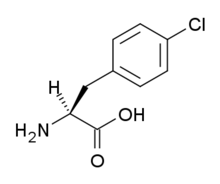|
|---|
|
| |
|---|
|
|
- Agonists: Azapirones: Alnespirone
- Binospirone
- Buspirone
- Enilospirone
- Eptapirone
- Gepirone
- Ipsapirone
- Perospirone
- Revospirone
- Tandospirone
- Tiospirone
- Umespirone
- Zalospirone; Antidepressants: Etoperidone
- Nefazodone
- Trazodone
- Vortioxetine; Antipsychotics: Aripiprazole
- Asenapine
- Clozapine
- Quetiapine
- Ziprasidone; Ergolines: Dihydroergotamine
- Bromocriptine
- Ergotamine
- Lisuride
- Methysergide
- LSD; Tryptamines: 5-CT
- 5-MeO-DMT
- 5-MT
- Bufotenin
- DMT
- Indorenate
- Psilocin
- Psilocybin; Others: 8-OH-DPAT
- Adatanserin
- Bay R 1531
- Befiradol
- BMY-14802
- Cannabidiol
- Dimemebfe
- Ebalzotan
- Eltoprazine
- F-11,461
- F-12,826
- F-13,714
- F-14,679
- F-15,063
- F-15,599
- Flesinoxan
- Flibanserin
- Lesopitron
- LY-293,284
- LY-301,317
- MKC-242
- Naluzotan
- NBUMP
- Osemozotan
- Oxaflozane
- Pardoprunox
- Piclozotan
- Rauwolscine
- Repinotan
- Roxindole
- RU-24,969
- S 14,506
- S-14,671
- S-15,535
- Sarizotan
- SSR-181,507
- Sunepitron
- U-92,016-A
- Urapidil
- Vilazodone
- Xaliproden
- Yohimbine
Antagonists: Antipsychotics: Iloperidone
- Risperidone
- Sertindole; Beta blockers: Alprenolol
- Cyanopindolol
- Iodocyanopindolol
- Oxprenolol
- Pindobind
- Pindolol
- Propranolol
- Tertatolol; Others: AV965
- BMY-7,378
- CSP-2503
- Dotarizine
- Flopropione
- GR-46611
- Isamoltane
- Lecozotan
- Mefway
- Metitepine/Methiothepin
- MPPF
- NAN-190
- Robalzotan
- S-15535
- SB-649,915
- SDZ 216-525
- Spiperone
- Spiramide
- Spiroxatrine
- UH-301
- WAY-100,135
- WAY-100,635
- Xylamidine
|
|---|
| | |
|---|
| |
- Agonists: Lysergamides: Dihydroergotamine
- Methysergide; Triptans: Almotriptan
- Avitriptan
- Eletriptan
- Frovatriptan
- Naratriptan
- Rizatriptan
- Sumatriptan
- Zolmitriptan; Tryptamines: 5-CT
- 5-Ethyl-DMT
- 5-MT
- 5-(Nonyloxy)tryptamine; Others: CP-135,807
- Bromocriptine
- CP-286,601
- GR-46611
- L-694,247
- L-772,405
- PNU-109,291
- PNU-142633
Antagonists: Lysergamides: Metergoline; Others: Alniditan
- BRL-15,572
- Elzasonan
- GR-127,935
- Ketanserin
- LY-310,762
- LY-367,642
- LY-456,219
- LY-456,220
- Metitepine/Methiothepin
- Ritanserin
- Yohimbine
- Ziprasidone
|
|---|
| | |
|---|
| | |
|---|
|
| |
| |
|---|
|
| |
|---|
| | |
|---|
| |
- Agonists: Phenethylamines: 2C-B
- 2C-E
- 2C-I
- 2C-T-2
- 2C-T-7
- 2C-T-21
- DOB
- DOC
- DOI
- DOM
- MDA
- MDMA
- Mescaline; Piperazines: Aripiprazole
- mCPP
- TFMPP; Tryptamines: 5-CT
- 5-MeO-α-ET
- 5-MeO-α-MT
- 5-MeO-DET
- 5-MeO-DiPT
- 5-MeO-DMT
- 5-MeO-DPT
- 5-MT
- α-ET
- α-Methyl-5-HT
- α-MT
- Bufotenin
- DET
- DiPT
- DMT
- DPT
- Psilocin
- Psilocybin; Others: A-372,159
- AL-38022A
- Alstonine
- Bromocriptine
- CP-809,101
- Dimemebfe
- Lorcaserin
- Medifoxamine
- MK-212
- Org 12,962
- ORG-37,684
- Oxaflozane
- PHA-57378
- PNU-22394
- PNU-181731
- Ro60-0175
- Ro60-0213
- Vabicaserin
- WAY-629
- WAY-161,503
- YM-348
Antagonists: Atypical antipsychotics: Clorotepine
- Clozapine
- Iloperidone
- Melperone
- Olanzapine
- Paliperidone
- Quetiapine
- Risperidone
- Sertindole
- Ziprasidone
- Zotepine; Typical antipsychotics: Chlorpromazine
- Loxapine
- Pimozide
- Pipamperone; Antidepressants: Agomelatine
- Amitriptyline
- Amoxapine
- Aptazapine
- Etoperidone
- Fluoxetine
- Mianserin
- Mirtazapine
- Nefazodone
- Nortriptyline
- Tedatioxetine
- Trazodone; Others: Adatanserin
- CEPC
- Cinanserin
- Cyproheptadine
- Deramciclane
- Dotarizine
- Eltoprazine
- Esmirtazapine
- FR-260,010
- Ketanserin
- Ketotifen
- Latrepirdine
- Metitepine/Methiothepin
- Methysergide
- Pizotifen
- Ritanserin
- RS-102,221
- S-14,671
- SB-200,646
- SB-206,553
- SB-221,284
- SB-228,357
- SB-242,084
- SB-243,213
- SDZ SER-082
- Xylamidine
|
|---|
|
| |
| |
|---|
|
| |
|---|
| | |
|---|
| | |
|---|
| |
- Agonists: Lysergamides: Dihydroergotamine
- Ergotamine
- Lisuride
- LSD
- Mesulergine
- Metergoline
- Methysergide; Tryptamines: 2-Methyl-5-HT
- 5-BT
- 5-CT
- 5-MT
- Bufotenin
- E-6801
- E-6837
- EMD-386,088
- EMDT
- LY-586,713
- N-Methyl-5-HT
- Tryptamine; Others: WAY-181,187
- WAY-208,466
Antagonists: Antidepressants: Amitriptyline
- Amoxapine
- Clomipramine
- Doxepin
- Mianserin
- Nortriptyline; Atypical antipsychotics: Aripiprazole
- Asenapine
- Clorotepine
- Clozapine
- Fluperlapine
- Iloperidone
- Olanzapine
- Tiospirone; Typical antipsychotics: Chlorpromazine
- Loxapine; Others: BGC20-760
- BVT-5182
- BVT-74316
- Cerlapirdine
- EGIS-12,233
- GW-742,457
- Ketanserin
- Latrepirdine
- Lu AE58054
- Metitepine/Methiothepin
- MS-245
- PRX-07034
- Ritanserin
- Ro04-6790
- Ro 63-0563
- SB-258,585
- SB-271,046
- SB-357,134
- SB-399,885
- SB-742,457
|
|---|
| |
- Agonists: Lysergamides: LSD; Tryptamines: 5-CT
- 5-MT
- Bufotenin; Others: 8-OH-DPAT
- AS-19
- Bifeprunox
- E-55888
- LP-12
- LP-44
- RU-24,969
- Sarizotan
Antagonists: Lysergamides: 2-Bromo-LSD
- Bromocriptine
- Dihydroergotamine
- Ergotamine
- Mesulergine
- Metergoline
- Methysergide; Antidepressants: Amitriptyline
- Amoxapine
- Clomipramine
- Imipramine
- Maprotiline
- Mianserin; Atypical antipsychotics: Amisulpride
- Aripiprazole
- Asenapine
- Clorotepine
- Clozapine
- Olanzapine
- Risperidone
- Sertindole
- Tiospirone
- Ziprasidone
- Zotepine; Typical antipsychotics: Chlorpromazine
- Loxapine;
- Pimozide; Others: Butaclamol
- EGIS-12,233
- Ketanserin
- LY-215,840
- Metitepine/Methiothepin
- Ritanserin
- SB-258,719
- SB-258,741
- SB-269,970
- SB-656,104
- SB-656,104-A
- SB-691,673
- SLV-313
- SLV-314
- Spiperone
- SSR-181,507
- Vortioxetine
|
|---|
|
| |
| |
| |
| |
|
Others |
|---|
|
| |
|---|
| | |
|---|
| Others |
- Activity enhancers: BPAP * PPAP; Reuptake enhancers: Tianeptine; Steroids: Anabolic-androgenic steroids
|
|---|
|
|
|
